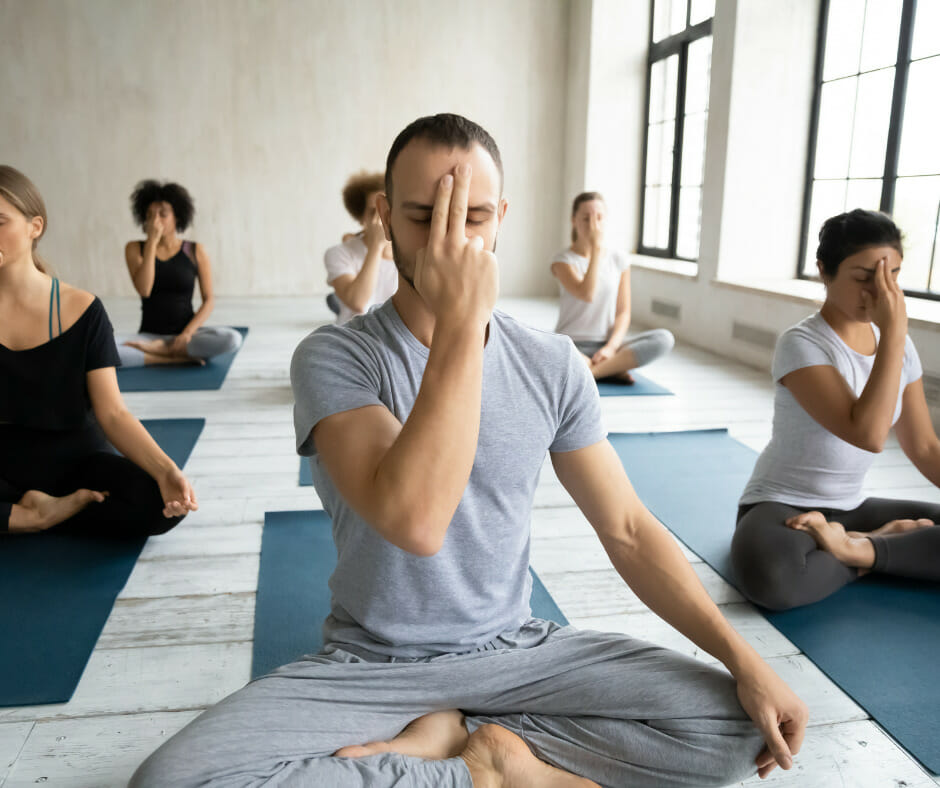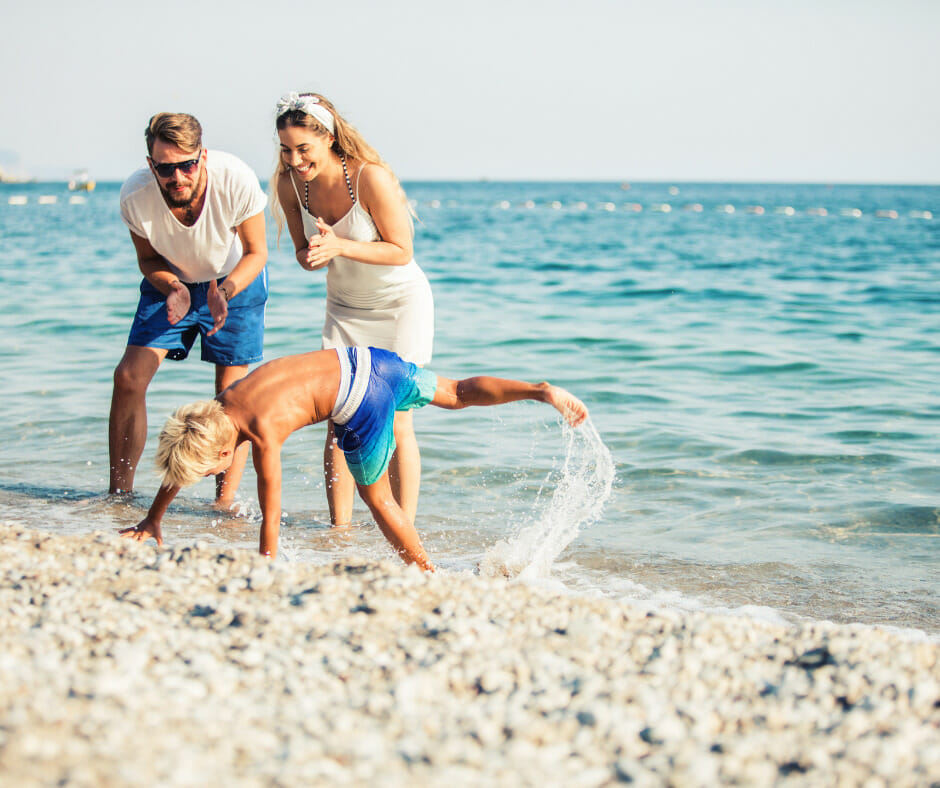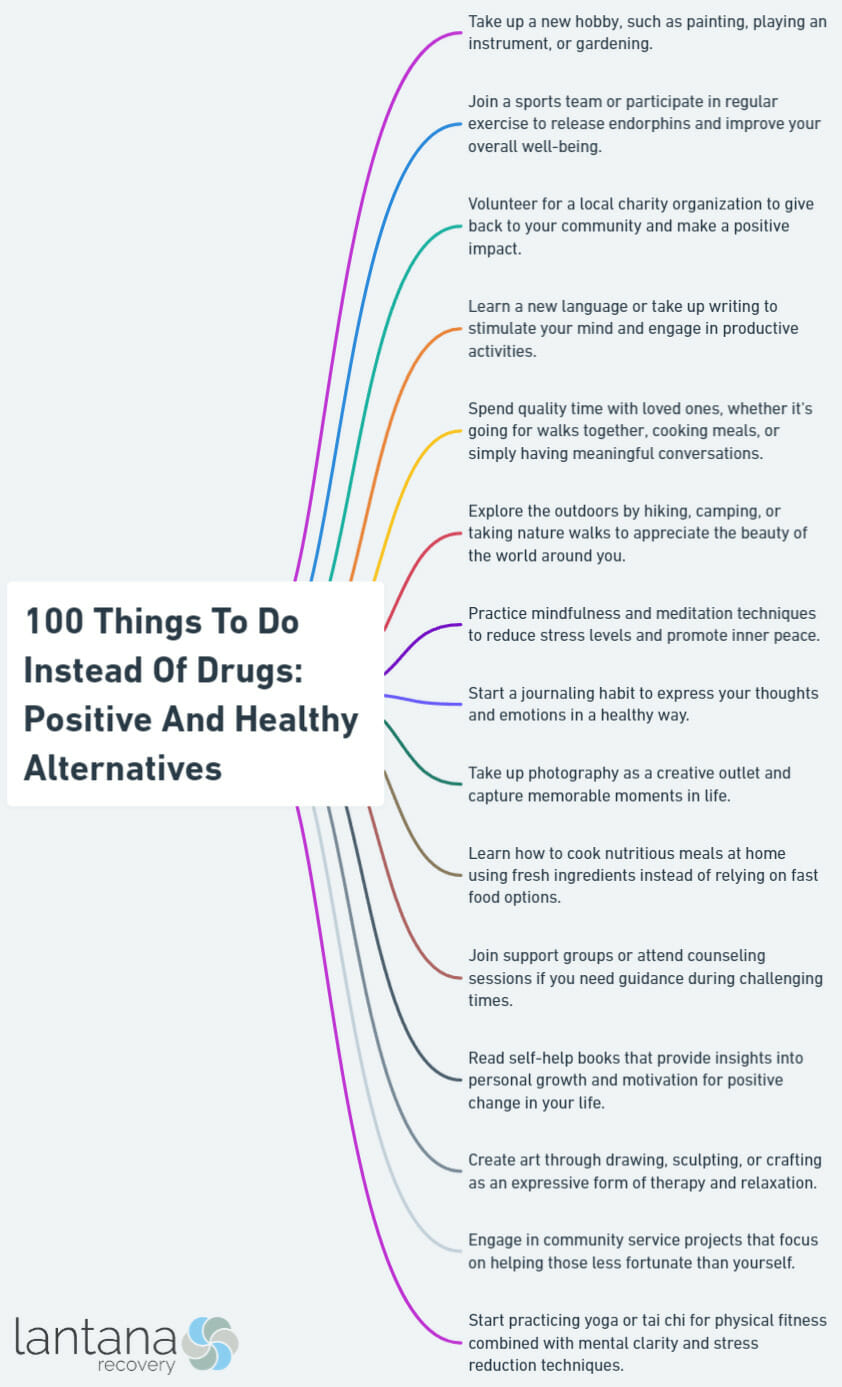Choosing positive and healthy alternatives to drugs is essential for individuals seeking a fulfilling and drug-free lifestyle. By opting for these alternatives, one can experience a range of benefits that enhance physical and mental well-being, improve relationships and social connections, and promote personal growth. These alternatives provide a constructive outlet for individuals to channel their energy and emotions. Here are some reasons why choosing positive and healthy alternatives to drugs is crucial:
- Better Physical and Mental Health: Engaging in positive activities promotes overall health and well-being. It helps individuals maintain physical fitness, reduce the risk of diseases, and improve mood and mental clarity.
- Improved Relationships and Social Connections: By focusing on positive alternatives, individuals can strengthen relationships with family and friends, build new connections with like-minded individuals, and foster a supportive social network.
Engaging in physical activities is a powerful way to divert attention from drugs and harness positive energy. Some examples of physical activities as alternatives to drug use include exercise, fitness programs, sports, and outdoor activities. These activities not only provide a way to stay physically fit but also serve as an outlet for stress and anxiety.
Creative pursuits offer individuals a means of self-expression and fulfillment. Art and crafts, music, and dance allow individuals to explore their creativity, boost self-confidence, and find joy in the process of creation.
Mental and emotional wellness is crucial for individuals seeking alternatives to drugs. Practices such as mindfulness and meditation help manage stress, improve focus and concentration, and promote emotional stability. journaling and writing offer an outlet for emotional expression and self-reflection.
Engaging in healthy hobbies promotes positive experiences and personal satisfaction. Cooking and baking allow individuals to nourish themselves and others while exploring their culinary skills. Gardening and nature-related activities provide opportunities to connect with the natural world and experience tranquility.
Building relationships plays a vital role in recovery. Spending quality time with family and friends strengthens bonds and offers support. Volunteering and helping others not only contribute to the community but also provide a sense of purpose and fulfillment.
Exploring personal growth is an ongoing process that helps individuals develop their skills and potentials. Reading and learning expand knowledge and understanding, while setting goals and life planning provide a roadmap for personal development and achievement.
By selecting positive and healthy alternatives to drugs, individuals can embark on a rewarding journey towards a fulfilling and substance-free life. These alternatives offer a multitude of benefits that contribute to physical and mental well-being, foster meaningful connections, and promote personal growth.

Why Choose Positive and Healthy Alternatives to Drugs?
Seeking positive and healthy alternatives to drugs can pave the way to a better life. In this section, we’ll explore why choosing these alternatives is crucial. From improving your physical and mental well-being to fostering stronger relationships and social connections, we’ll discover the remarkable benefits awaiting those who opt for a drug-free path. So, step into a world of abundant possibilities, leaving behind the harmful allure of drugs for a brighter future filled with vitality and meaningful connections.
Better Physical and Mental Health
Better physical and mental health is crucial for overall well-being. Here are some activities that can improve your physical and mental health:
-
Engage in regular exercise: Jogging, cycling, or swimming can enhance your physical fitness and boost your mood. Aim for at least 30 minutes of moderate-intensity exercise most days of the week.
-
Adopt a healthy eating plan: Eat a balanced diet rich in fruits, vegetables, whole grains, and lean proteins to provide your body with essential nutrients and maintain a healthy weight.
-
Prioritize adequate sleep: Getting enough quality sleep each night is important for maintaining your physical and mental health. Aim for 7-9 hours of sleep per night.
-
Practice stress management techniques: Mindfulness meditation, deep breathing exercises, and yoga can help manage stress levels and improve your mental well-being.
-
Build social connections: Positive relationships with family, friends, and the community contribute to better mental health and overall happiness.
Fact: According to Center of Disease Control and Prevention regular exercise can reduce the risk of chronic diseases like heart disease, diabetes, and certain types of cancer, while also improving mood and reducing symptoms of anxiety and depression.
Improved Relationships and Social Connections
Improved relationships and social connections are essential for well-being and can greatly contribute to a fulfilling life. Here are several natural ways to enhance your relationships and build new connections:
- Spend quality time with family and friends: By building strong bonds with your loved ones, you create a support system and foster a sense of belonging. Regularly spending quality time with them can strengthen relationships, improve communication, and increase overall satisfaction.
- Engage in group activities and clubs: Joining groups or clubs that align with your interests provides opportunities to meet like-minded individuals and establish new connections. Engaging in activities together allows for shared experiences, the exchange of ideas, and the potential for lifelong friendships.
- Volunteer and assist others: Contributing to the community not only benefits those in need but also promotes personal growth and enhances social connections. Volunteering allows you to make a positive impact, meet people with similar values, and form connections through shared goals and experiences.
- Attend social events and network: Actively participating in social events and networking opportunities is a practical way to expand your social circle and create new friendships. Parties, gatherings, and professional conferences provide chances to meet diverse individuals and establish meaningful connections.
- Utilize social media and online communities: Online platforms and communities offer a virtual space to connect with others who share common interests or experiences. Engaging in online discussions, joining relevant groups, and participating in virtual events can lead to meaningful connections and the exchange of ideas and support.
To improve your relationships and social connections, make an effort to reach out to loved ones more frequently, actively engage in social activities, and seek opportunities to connect with new people who share your interests and values. Building and nurturing these connections can enhance your overall well-being and create a robust support network.
Physical Activities
Ditch the drugs and embrace a healthier lifestyle through physical activities. In this section, we dive into the invigorating world of exercise and fitness, where your body becomes a powerhouse of strength and vitality. Want to take it a step further? Then get ready for the excitement of sports and outdoor activities, where adrenaline and pure enjoyment collide. Let’s explore these body-moving sub-sections that will keep you engaged and free from harmful substances.
Exercise and Fitness
Exercise and fitness are crucial for maintaining a healthy lifestyle. Here are a few ways in which they can positively impact your well-being:
- Boosts physical health: Engaging in regular exercise helps improve cardiovascular fitness, strengthens muscles and bones, and increases overall physical endurance. Activities such as jogging, cycling, or swimming can raise your heart rate, enhance lung function, and assist with weight management.
- Enhances mental well-being: Physical activity can effectively reduce symptoms of anxiety and depression, stimulate the release of mood-boosting endorphins, improve the quality of your sleep, and enhance cognitive function.
- Provides stress relief: Exercise serves as a healthy outlet for stress, alleviates tension and frustration, promotes relaxation and mindfulness, and cultivates inner peace.
- Promotes longevity: By incorporating exercise into your routine, you can lower the risk of chronic conditions like heart disease, diabetes, and certain cancers, ultimately leading to a longer lifespan.
- Facilitates social connections: Participating in group fitness classes, sports teams, or exercise clubs offers opportunities to meet like-minded individuals, build social connections, and motivate each other towards achieving fitness goals.
By making exercise and fitness a part of your daily regimen, you can improve your physical health, enhance your mental well-being, and enjoy the numerous benefits of a healthy and active lifestyle.
Sports and Outdoor Activities
Sports and outdoor activities are positive and healthy alternatives to drugs. They promote physical fitness, mental well-being, and personal growth.
To incorporate exercise and fitness into your lifestyle, engage in regular physical activities like running, cycling, and yoga. These activities improve cardiovascular health, strengthen muscles, and boost energy levels.
Engage in various sports such as basketball, soccer, or tennis. They provide a fun and competitive outlet, while also enhancing teamwork skills, discipline, and strategic thinking.
Outdoor activities offer a multitude of benefits. Explore nature through hiking, camping, or birdwatching. Spending time in green spaces reduces stress, improves mood, and enhances overall well-being.
Try adventurous activities like rock climbing, kayaking, or surfing. These activities provide an adrenaline rush, boost confidence, and cultivate a sense of accomplishment.
According to a study published in the journal, Scientific Reports, spending at least 120 minutes per week engaged in outdoor activities significantly increases happiness and well-being.

Creative Pursuits
Discover a world of creativity with the section on Creative Pursuits. Uncover the joy of artistic expression as we delve into the sub-sections of Art and Crafts and Music and Dance. Whether it’s painting, sculpting, or exploring the rhythmic movements of music and dance, these engaging activities offer positive and healthy alternatives to drugs. So, put your imagination to work and ignite your passion for the arts as we embark on this transformative journey.
Art and Crafts
Art and crafts, as an outlet for self-expression, offer numerous benefits for mental and emotional well-being. Engaging in art and crafts activities not only boosts imagination but also enhances problem-solving skills and cultivates a sense of accomplishment.
One of the significant advantages of creating art and crafts is stress relief. This therapeutic activity reduces stress and anxiety, allowing individuals to calm their minds and promote relaxation by focusing on the task at hand.
Additionally, art and crafts involve cognitive processes such as problem-solving, critical thinking, and spatial awareness, which contribute to improved cognitive function. These activities stimulate the brain, enhancing cognitive abilities and problem-solving skills.
Completing art projects brings a sense of achievement and pride, ultimately boosting self-esteem and self-confidence. This positive impact on well-being further enhances the individual’s sense of accomplishment and belief in their creative abilities.
Moreover, art and crafts provide a unique channel for the expression of emotions that are difficult to put into words. By engaging in artistic activities, individuals can explore and communicate their feelings, leading to emotional release and self-awareness.
Furthermore, art and crafts can also be a social activity that fosters collaboration and connections with others. Joining art classes or participating in group craft projects creates opportunities for social interaction and the development of friendships.
Factually, studies have shown that engaging in art and crafts stimulates the release of dopamine, a neurotransmitter associated with pleasure and reward. This release of dopamine ultimately contributes to increased happiness and overall well-being.
So, whether you are seeking stress relief, cognitive enhancement, self-esteem boost, emotional expression, or social connection, art and crafts provide the perfect avenue to engage in and reap these benefits.
Music and Dance
Music and dance offer physical and mental well-being benefits. Incorporating music and dance into your daily routine or taking dance classes can have a significant impact on your physical and mental health. These activities require movement, coordination, and stamina, improving cardiovascular health, muscle tone, flexibility, and overall fitness.
Music and dance also have positive effects on mental health, providing an avenue for self-expression, releasing stress and emotions. Music reduces anxiety, alleviates depression, and enhances mood, while dance improves cognitive functions, memory, and concentration.
Music and dance also bring people together, fostering social connections and a sense of belonging. Joining a dance class or participating in a music ensemble provides opportunities to meet new people, form friendships, and engage in teamwork. Additionally, music and dance serve as healthy alternatives to drugs, offering positive and constructive ways to spend time. They cultivate fulfillment, help manage stress, and promote overall well-being.
So, put on your favorite song and dance!

Mental and Emotional Wellness
Looking to boost your mental and emotional wellness? Dive into the world of our “Mental and Emotional Wellness” section. We’ll explore powerful techniques like mindfulness and meditation that can help you find inner peace and clarity. And if you’re a wordsmith at heart, get ready to discover the transformative benefits of journaling and writing. It’s time to prioritize your well-being and explore these incredible paths to personal growth and self-discovery.
Mindfulness and Meditation
Mindfulness and meditation are practices that offer a multitude of benefits for both physical and mental well-being. Incorporating mindfulness and meditation into daily life can lead to significant improvements in overall quality of life.
“Studies indicate that MBIs reduce substance misuse and craving by modulating cognitive, affective, and psychophysiological processes integral to self-regulation and reward processing. ” (Mindfulness-based treatment of addiction: current state of the field and envisioning the next wave of research, Garland, Howard, 2018)
One of the major advantages of mindfulness and meditation is their ability to reduce stress. By promoting relaxation and calming the mind, these techniques effectively alleviate stress. Regular practice of mindfulness has been shown to have a significant impact on stress management.
In addition to reducing stress, mindfulness and meditation also enhance mental clarity. These practices improve focus and concentration, training the mind to stay present and effectively manage distractions. As a result, individuals experience improved mental clarity and focus.
Moreover, mindfulness and meditation foster emotional well-being. By cultivating self-awareness and emotional resilience, individuals can better understand and navigate their own emotions and responses to situations. This deeper understanding leads to enhanced emotional well-being and improved relationships with others.
Another significant benefit of incorporating mindfulness and meditation into daily life is the improvement of sleep quality. By reducing racing thoughts and promoting relaxation, these practices help individuals achieve a peaceful mind, allowing them to fall asleep faster and experience more restful sleep.
Furthermore, mindfulness and meditation promote compassion and empathy. By adopting a non-judgmental mindset and cultivating empathy towards oneself and others, individuals can foster improved relationships and contribute to a more compassionate society.
Lastly, mindfulness and meditation positively impact overall well-being. These practices have been shown to lower blood pressure, reduce inflammation, and boost the immune system, leading to improved physical health.
The origins of mindfulness and meditation lie in Eastern traditions such as Buddhism and Hinduism, where they were initially developed for spiritual enlightenment and self-understanding. However, these practices have gained recognition in the Western world, with scientists, psychologists, and healthcare professionals embracing and studying their benefits. Mindfulness and meditation are now integrated into therapeutic approaches and wellness programs to promote holistic health.
As more people recognize the transformative effects of mindfulness and meditation, these practices continue to evolve and find their place in modern society as essential tools for fostering well-being and inner peace.
Journaling and Writing
Journaling and writing are essential for promoting mental and emotional well-being. They provide a safe outlet for expressing emotions, allowing individuals to process their thoughts and feelings effectively. This practice helps clarify thoughts, reduce stress levels, and ultimately improve overall mental health.
Besides emotional expression, regular journaling also fosters self-reflection. By documenting experiences and reflecting upon them, individuals can gain valuable insights into their goals, values, and patterns for positive change. This introspective process aids personal growth and help beat drug addiction.
Furthermore, writing is a powerful tool for creative expression. It allows individuals to explore their ideas, thoughts, and stories through various forms such as poetry, fiction, or personal narratives. Engaging in these creative endeavors provides individuals with a fulfilling outlet for self-expression.
Additionally, writing can also be an effective problem-solving technique. When faced with challenges, putting thoughts into words enables objective analysis and facilitates the generation of new ideas. By engaging in this process, individuals cultivate a positive mindset and enhance their ability to find solutions.
Journaling also has the ability to boost mood by focusing on gratitude and positivity. By writing down moments of joy, achievements, and expressions of gratitude, individuals can enhance their overall well-being. This practice cultivates a positive mindset and helps individuals appreciate the positive aspects of their lives.
To make the most out of journaling, it is important to dedicate consistent time to this practice and explore different techniques. Some examples include free writing, gratitude journaling, or using writing prompts. It is important to remember that there are no rules when it comes to journaling, allowing thoughts to flow freely onto the page is key.

Healthy Hobbies
Looking for healthy and fulfilling alternatives to drugs? In this section, we’ll explore the world of healthy hobbies that can bring joy and purpose into your life. From the delights of cooking and baking to the serenity of gardening and connecting with nature, these diverse sub-sections offer exciting avenues to explore. So, put away the harmful substances and get ready to embrace these engaging activities that can enhance your well-being and provide a positive outlet for your energy.
Cooking and Baking
Cooking and baking can be a great alternative to drugs. It is a productive and enjoyable way to spend your time and offers benefits for your physical and mental well-being. Here are some reasons why cooking and baking can be wonderful:
-
Creative expression: Cooking and baking allow you to unleash your creativity and experiment with flavors, ingredients, and recipes. You can come up with unique dishes and explore different culinary techniques, providing a sense of accomplishment and satisfaction.
-
Stress relief: Engaging in cooking and baking can reduce stress. Following recipes and working with ingredients can promote relaxation and mindfulness.
-
Nutritious meals: By cooking your own meals, you control the ingredients used, ensuring you consume healthy and nutritious food. This contributes to better physical health and overall well-being.
-
Connection and bonding: Cooking and baking can be a social activity, allowing you to connect and bond with family or friends. It provides an opportunity to share the joy of preparing meals together and create lasting memories.
-
Sense of achievement: Successfully cooking a meal or baking a tasty treat can boost your self-confidence and provide a sense of pride. It is a tangible result of your efforts.
So, if you’re looking for a positive and healthy alternative to drugs, try engaging in cooking and baking. It offers a productive way to spend your time and provides numerous benefits for your physical and mental well-being.
If you are having a hard time curbing your cravings for drugs, read our article on how to say no to drugs and strategies for resisting temptation.
Gardening and Nature
Gardening and nature offer a multitude of benefits for those seeking healthy alternatives to drugs. Engaging in gardening activities allows individuals to connect with the natural world, which in turn boosts overall well-being and enhances mental clarity and focus.
Additionally, gardening has the power to reduce stress and promote relaxation, providing a calming effect on both the mind and body. The physical activity involved in gardening, such as digging, planting, weeding, and watering, contributes to improved fitness and physical health.
Moreover, gardening serves as a creative outlet, allowing individuals to express themselves artistically through designing and arranging plants, which in turn enhances their sense of accomplishment. Another advantage of gardening is the opportunity to grow fresh and healthy produce, including fruits, vegetables, and herbs, which not only provides access to nutritious food but also encourages healthier eating habits.
Furthermore, gardening can be utilized as horticultural therapy, offering therapeutic benefits and fostering a sense of purpose and connection with the natural world. Lastly, gardening promotes environmental awareness and sustainable practices, enabling individuals to contribute to a more eco-friendly lifestyle.
By embracing gardening and nature, individuals can discover joy, relaxation, and fulfillment while choosing healthier alternatives to drugs.
Building Relationships
Build stronger connections and live a drug-free life by focusing on building relationships. Discover the power of spending quality time with loved ones and the joy that comes from giving back to the community through volunteering. Embrace the positive alternatives that foster meaningful connections and contribute to a healthier and happier lifestyle. Let’s explore how these simple yet impactful actions can transform your life for the better.
Spending Time with Family and Friends
Spending time with family and friends is crucial for our well-being and happiness. It strengthens bonds, creates lasting memories, and gives us a sense of belonging. Here are some activities you can enjoy together:
- Have a family game night and play board games or card games that everyone enjoys.
- Organize a picnic in the park and enjoy a meal together while appreciating the beautiful surroundings.
- Take a family trip or vacation to explore new places and create unforgettable memories.
- Have a movie night at home and watch your favorite movies or have a movie marathon.
- Go for a hike or nature walk with your loved ones and connect with nature.
- Prepare and cook a meal together, bonding and learning new recipes and cooking skills.
- Plan a day trip to a nearby attraction or landmark that the whole family can enjoy.
- Organize a family sports day and engage in friendly competitions, having fun being active together.
- Attend community events or festivals together, immersing yourselves in the local culture.
- Simply spend quality time together, whether it’s having a heartfelt conversation or enjoying each other’s company without distractions.
By spending time with family and friends, we strengthen relationships, create lasting memories, and cultivate love and support. It’s essential to prioritize these moments and cherish the time we have with our loved ones.
Last summer, my family and I went camping by the lake away from our busy lives and daily routines. We spent a week surrounded by nature. During the day, we hiked, swam in the lake, and had picnics under tall trees. In the evenings, we gathered around the campfire, roasted marshmallows, and shared stories. Being unplugged allowed us to be fully present and engaged with each other. We laughed, played games, and enjoyed the simple pleasures of being together. It was a time of bonding, relaxation, and creating cherished memories. The experience brought us closer as a family and reminded us of the importance of spending quality time with each other. Since then, we have prioritized planning more family trips and activities that foster connection and togetherness.
Volunteering and Helping Others
Volunteering and helping others is a rewarding way to make a positive impact on society and improve your well-being. By actively engaging in acts of kindness, you contribute to the betterment of your community. Here are some reasons why volunteering and helping others should be considered:
- Enhances well-being: Volunteering and helping others have been linked to improved mental and physical health. It boosts happiness and reduces stress and depression symptoms. Acts of kindness release endorphins, natural mood enhancers, leading to a greater sense of well-being.
- Builds relationships: Volunteering provides an opportunity to connect with others who share values and interests. It strengthens existing relationships and helps form new friendships. Working together towards a common goal develops camaraderie and belonging.
- Cultivates empathy and compassion: Volunteering allows you to understand the struggles and challenges of others. It fosters empathy and compassion as you witness the impact of your efforts on those in need. This enhances your ability to connect and support others.
- Makes a difference: Volunteering and helping others empower you to create positive change in individuals and communities. Whether helping at a local shelter, tutoring underprivileged children, or participating in environmental clean-ups, your actions can have a lasting impact and contribute to a better world.
- Personal growth: Volunteering provides opportunities for acquiring new skills, valuable experience, and broadening perspective. It helps you discover hidden talents and strengths, boosting self-confidence and self-esteem.
Incorporating volunteering and helping others into your life benefits those you help and enhances your well-being and personal growth. It’s a win-win situation that allows you to contribute positively to society while experiencing the joy and fulfillment of making a difference.

Exploring Personal Growth
Looking for ways to grow personally and embrace positive changes in your life? This section is all about exploring personal growth and finding alternatives to negative habits. Get ready to dive into two key sub-sections: Reading and Learning, where we’ll discover how knowledge can ignite personal transformation, and Setting Goals and Life Planning, where we’ll uncover the power of setting intentions and mapping out a path to success. Join us on this journey of self-improvement and discover the endless possibilities for personal growth.
Reading and Learning
Reading and learning are essential for individuals seeking positive alternatives to drugs. Engaging in these activities can expand knowledge, enhance cognitive abilities, promote personal growth and self-improvement, foster empathy and understanding of others, and reduce stress. Moreover, dedicating time to reading and learning can significantly contribute to overall well-being, personal growth, and a positive lifestyle. By embracing these activities, individuals can cultivate an enriching and fulfilling life, free from the harmful effects of drugs.
Setting Goals and Life Planning
Setting goals and life planning are crucial for personal growth and success. Here are steps to assist you in setting goals and life planning:
- Reflect on your values and aspirations: Contemplate what truly matters to you and what you aspire to achieve in various aspects of your life—career, relationships, health, personal development, and more.
- Identify specific and measurable goals: Break down your aspirations into attainable goals. Ensure these goals are measurable so that you can track your progress effectively.
- Create an action plan: Outline the necessary steps to reach each goal. This will provide you with a clear roadmap and keep you focused on your objectives.
- Set deadlines: Establish deadlines for each goal to create a sense of urgency and maintain your motivation levels.
- Stay committed and accountable: Find ways to hold yourself accountable, such as sharing your goals with a trusted individual. Regularly evaluate your progress and make adjustments when needed.
- Celebrate milestones: When you achieve significant milestones, take the time to celebrate them. This will reinforce your commitment and boost your morale along the way.
Setting goals and planning your life can have a profound impact on your well-being and success. It helps you stay focused, motivated, and provides direction to your efforts. By following these steps and remaining committed, you can transform your dreams into reality.
A true story:
Meet Sarah, a young woman who struggled to find purpose in her life. She made the decision to set goals and plan for her future. Through reflecting on her values and aspirations, she discovered a deep passion for helping others. Sarah identified her goals, which included obtaining a degree in social work and establishing a non-profit organization to support underprivileged communities.
With an action plan in place and specific deadlines, Sarah diligently worked towards her goals. She faced challenges along the way but remained committed and found support from her accountability partner. Sarah celebrated each milestone, from graduating with honors to securing funding for her organization.
Today, Sarah’s non-profit organization positively impacts countless individuals, thanks to her unwavering dedication to setting goals and following through on her life plans. Sarah’s story serves as a powerful reminder of the potential of setting goals and committing to life planning to create a meaningful and fulfilling future.

Frequently Asked Questions
1. What are some positive and healthy alternatives to drugs and alcohol?
There are numerous activities you can engage in instead of drugs and alcohol. Some options include volunteering for a cause, participating in a peer support group, starting a DIY project, joining a book club, going on a road trip, and playing video games.
2. How can peer support groups help individuals in recovery?
Peer support groups provide a safe and understanding environment where individuals can share their experiences, struggles, and successes with others who have faced similar challenges. These groups offer encouragement, understanding, and a sense of community, which can help individuals in their journey towards recovery. You can find plenty of peer support groups at our outpatient drug treatment center in Greenville, South Carolina.
3. What are the benefits of volunteering for someone in recovery from addiction?
Volunteer opportunities provide individuals with a sense of purpose, an opportunity to give back to the community, and a chance to develop new skills and interests. Volunteering can also help individuals build self-esteem, establish a routine, and create a support network of like-minded individuals who share similar values.
4. How can recovery coaches support individuals after leaving inpatient rehab?
Recovery coaches are professionals who teach addicts how to beat drug addiction by providing guidance, support, and accountability to individuals in recovery. They help create personalized recovery plans, offer emotional support, connect individuals to community resources, and assist in navigating the challenges of everyday life. Recovery coaches can be an invaluable support system during the challenging time of transitioning to life after inpatient rehab.
5. What are some activities that can help improve emotional health for someone in recovery?
Engaging in activities such as writing in a journal, practicing yoga or meditation, attending peer support groups, participating in a book club, and practicing gratitude through writing letters of gratitude can help improve emotional health for individuals in recovery. These activities provide a sense of mindfulness, self-reflection, and connection with others, which are essential for emotional well-being.
6. How can individuals make the most of their extra time after overcoming drug or alcohol addiction?
After overcoming addiction, individuals may have a significant amount of free time that they can use in positive and fulfilling ways. They can explore new hobbies, catch up with old friends, dedicate time to self-care activities like tidying up the house or starting DIY projects, engage in physical activities like solo camping or joining a sporting event, or even take up new educational pursuits like joining a class or learning about another culture.









